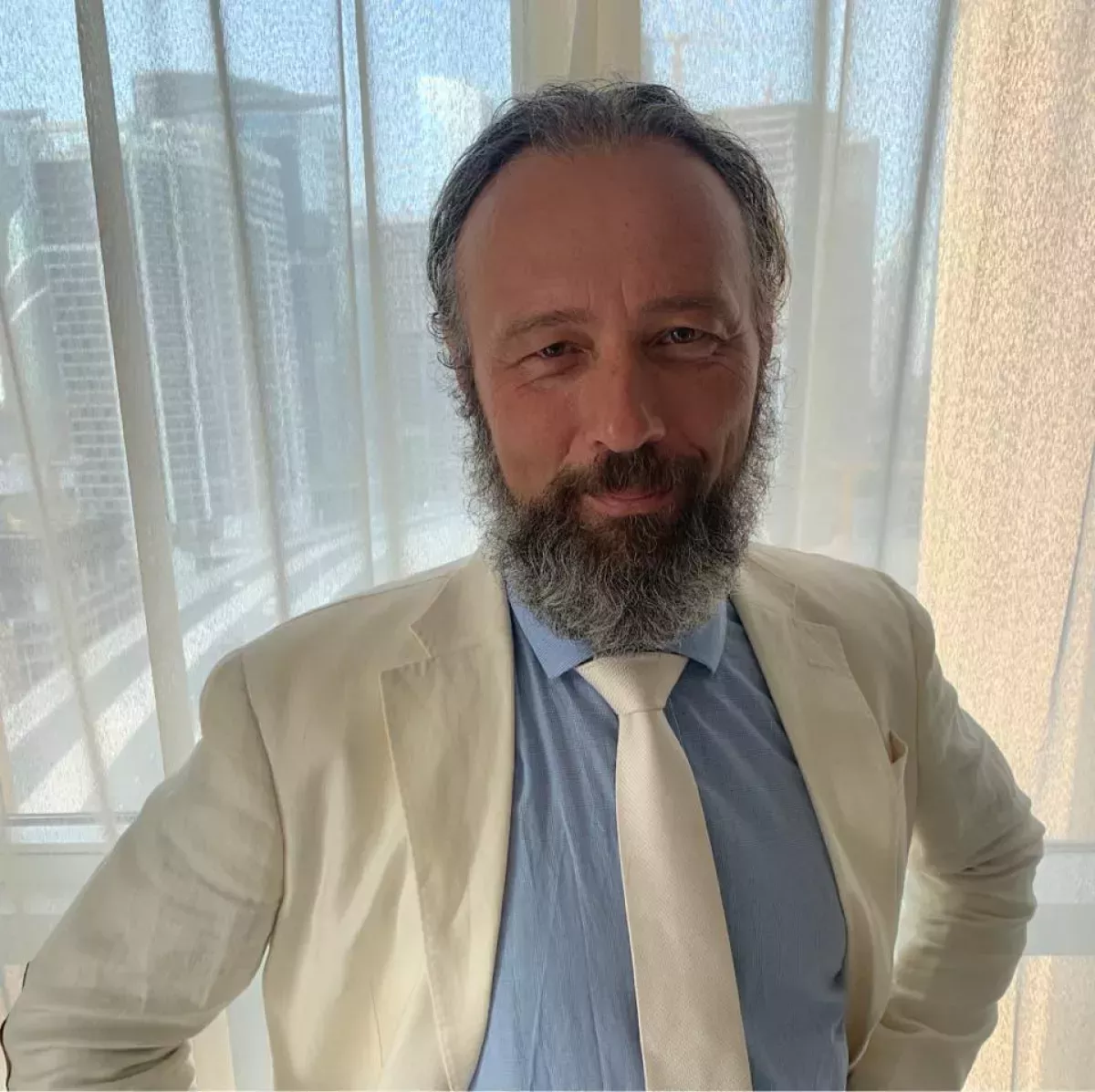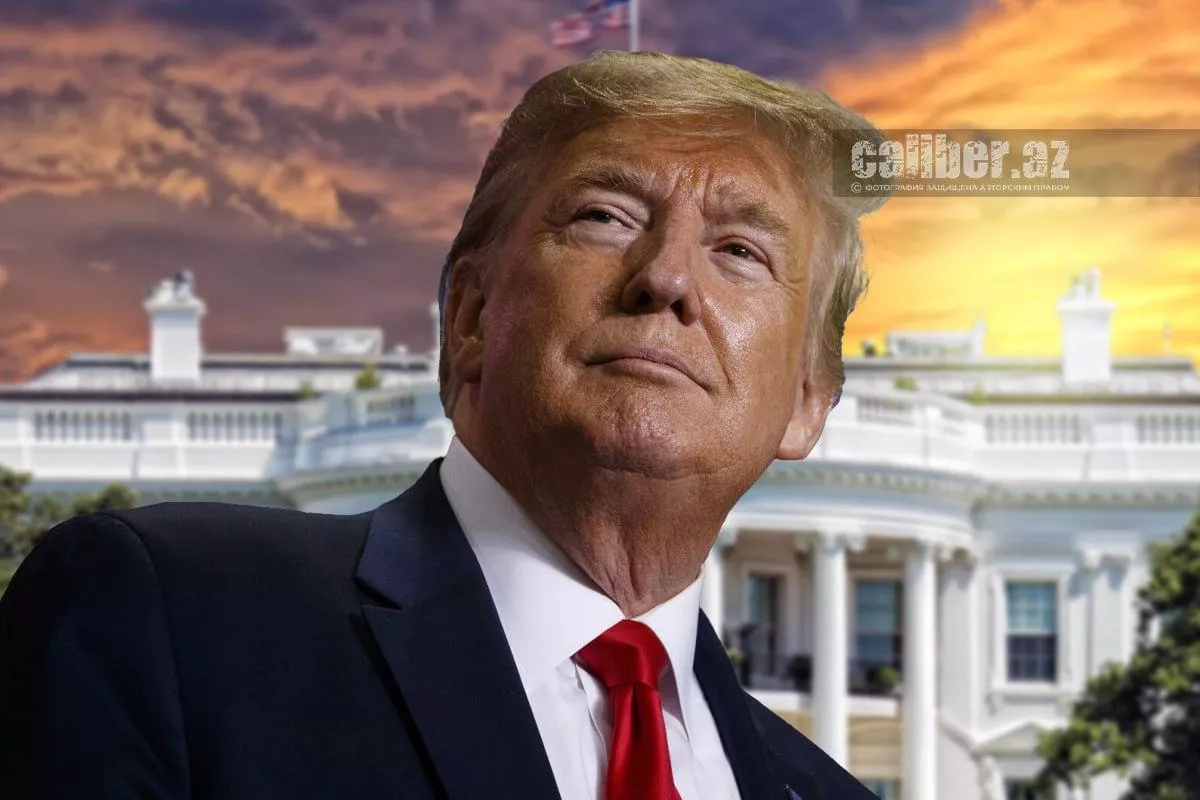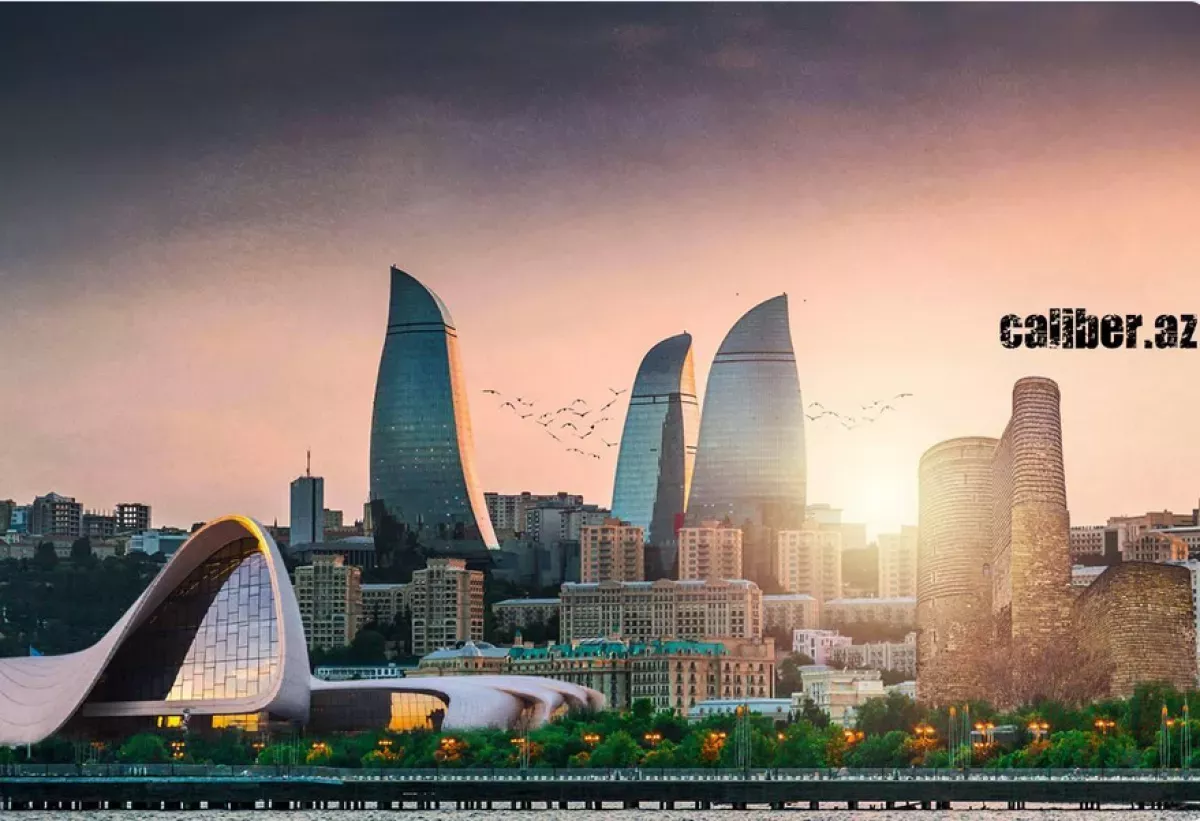Trump's team knows Azerbaijan as guarantor of stability in South Caucasus And advocates for Armenia to abandon revanchism
Israeli expert, PhD, graduate of Harvard University's theological graduate school and political analyst Dmitry Radyshchevski has expressed his views about the situation in various countries during Donald Trump’s presidency in an interview with Caliber.Az.

— On January 20, the White House will have a new president — Donald Trump. It’s been some time since November, but in your opinion, who is the typical Trump voter?
— Overall, Trump's victory represents the triumph of pragmatic patriotism and democracy over globalism and the tyranny of bureaucracy. In other words, it’s capitalism defeating oligarchic neo-Marxism. The reason is that in essence, the ideology of the US under Clinton, Obama, and Biden became neo-Marxism — that is, the rule of minorities, unelected bureaucracies of the deep state, and the oligarchy. This primarily refers to the so-called "Big Pharma" (a term for the group of multinational companies producing pharmaceutical products), Big Tech (a term for the most dominant and biggest technology companies in the US), as well as the military-industrial complex.
Trump returned America to its core values — protecting the interests of the middle class, populism in its best and most direct sense — derived from the word "popula" meaning the people. The idea here is that power should be driven by the desire of the popular majority. Of course, the US will continue protecting the interests of big business, as any country with a market economy defends the interests of its leading industries. However, first and foremost, the US will return to protecting its working middle class, which is the foundation of society. Who is Trump's primary voter base? It’s the US middle class and Christians. These two groups largely overlap. For the most part, the US middle class consists of Christians — Protestants, Catholics, as well as Latinos and African Americans. In many cases, even people who were on social welfare, including many African Americans and Latin American immigrants from disadvantaged social backgrounds, also voted for Trump.
They did so because they were Christians and because Trump restored rationality and common sense, which aligned with biblical Christian values. The US middle class actually dictates the foreign policy direction of the US. This applies to relations with all countries around the world, including Azerbaijan and Israel. The US taxpayer, the middle class, doesn’t understand why they should pay higher taxes and live worse just to follow the ideology of neo-Marxism and globalism, while enriching the oligarchy.
In particular, why should they live worse because the government under Obama and Biden pours vast sums into supporting illegal immigrants and essentially opened the southern border of the US — the very barrier that Trump tried to build? Why should they fund Zelenskyy’s government? Why should they finance Ukraine's war with Russia? They are right — many decisions are driven by cynical political interests. The Democratic Party believes that the more illegal immigrants it lets in, and the faster it grants them legalization and benefits, the more likely these individuals will vote for Democrats in gratitude, ensuring that Republicans never return to power.

Trump is a pragmatic politician who focuses on the needs of society, and his platform will address all these issues. The common sense aligns with biblical values here, which is so important for the US middle class. In fact, if we look at history, the US has always stood strong, like a cowboy with its feet firmly planted, on the Bible and pragmatism — and that’s why it became a great power.
— How will the focus of US foreign policy shift under Trump?
Proceeding from the abovementioned words, Trump is expected to primarily focus on addressing the issue of China, his policy towards Russia and Ukraine in the areas where they intersect with China, as well as advancing US plans in the Middle East. China is a highly sensitive issue for the US because, as many people in the US believe, China is taking away middle-class US jobs, driving down prices for US goods, dominating the Pacific, and generally having a presence everywhere. Even Trump's interest in purchasing Greenland for the US is not incidental — it’s because Beijing's influence is growing there.
China is skillfully expanding its presence through investments, capturing business sectors and spheres of influence — from Greenland to Africa, from Mexico to Hollywood. I lived and worked in Hollywood, so I’m familiar with the situation. I can say that even in the US film industry, China’s influence is being felt, which is something many Americans dislike. Through investments, the Chinese have acquired a large portion of US cinema chains and significant shares in the major Hollywood studios. As a result, no major US film studio would dare criticize China. In the past two decades, there has been virtually no film where the Chinese or the Communist Party of China are portrayed as antagonists.
The villains are more often depicted as the Russian mafia, North Korea, or various jihadists. The US must confront China — this is the ideological platform of Trump and the Republican Party, with China identified as Washington’s primary adversary. In English, this is referred to as a "clear and present danger." Therefore, such a clear-cut slogan will undoubtedly be the central focus of Trump’s foreign policy.

The second point is Russia and Ukraine, which, according to Trump’s team, is a byproduct of the China issue. Trump and his team have a clear understanding of what needs to be done to separate Russia from China — a bond that the policies of Obama and Biden towards Ukraine irresponsibly and thoughtlessly pushed Moscow into. The second component is also biblical: many American Christians who support Trump argue that the Democratic administration committed a great sin by pitting two Christian nations — Russia and Ukraine — against each other, dragging them into a fratricidal war. They advocate for a biblical reset in relations between the US and Russia.
It’s important to remember that these two nations represent the Western and Eastern wings of world Christianity, and they need to reconcile. They are in favour of a biblical reset in relations between the US and Russia. It’s important to remember that these two nations represent the Western and Eastern wings of world Christianity, and they must reconcile. Therefore, with Trump’s arrival, I believe that, as he promised, a ceasefire will be achieved in Ukraine, followed by a long process of negotiations, and the conflict will at least enter a frozen stage.
— What should Israel expect?
As for Israel, both pragmatism and a biblical approach are involved for the US administration. Biblically, Israel is the center of monotheistic civilization, the heart of biblical civilization. Therefore, it must be supported based on prophecies, ethics, and morality. Israel expects that Trump won't so much help Israel — as it can manage on its own with God's help — but rather give it the freedom to act, as the Obama and Biden administrations had restrained Israel's capabilities. Therefore, in global matters, the majority of Israelis and me expect significant positive changes in the Middle East.
— What can the South Caucasus expect during Trump’s presidency?During the Biden administration, there was active military and political support for Armenia, which significantly impacted the relationship between Baku and Washington.
— In general, Azerbaijan is the key guarantor of stability in the South Caucasus. I believe the Trump administration will recognize and acknowledge this. In the past, I worked with the expert division of the US Congress on combating international terrorism, and we always emphasized and prepared reports stating that Azerbaijan should be the primary ally of the US in the South Caucasus. Just look at who is most effective in fighting terrorism in such a complex regional environment — it’s clearly Azerbaijan.

Who is Iran's main ally in the region? It is Armenia. Unfortunately, our recommendations were not always accepted by the White House when the Democratic administrations were in power. This is because, unfortunately, the US Democratic Party is deeply intertwined with the Armenian lobby in the US. They are one of the biggest donors to the Democrats. Fortunately, the Democrats are leaving, and the approach of the US to Baku will change significantly under the Trump administration. I believe that Trump and his team will rely on Azerbaijan’s help in mediating between Türkiye and Israel. Azerbaijan is a stronghold, a fortress of stability and development. Azerbaijan has the capacity to reconcile Türkiye and Israel, two of its allies.
As for Armenia's cooperation with NATO, I believe Baku need not worry — Armenia will not become a member of this bloc. Not because Russia is opposed, but because Trump is against NATO's expansion and exacerbating the conflict with Russia. As you know, Trump has always advocated for reducing US involvement in NATO, and even for the US to exit NATO. Without American support, NATO will be unable to function. We mentioned earlier that Trump is a realist. From a realist perspective, Russia is not a threat to either the US or Europe. All these scare stories about Russia advancing from Ukraine to Poland and the Baltic States are just fairy tales created to stir up necessary hysteria. These threats are simply used to inflate NATO's budget. The real threat to the US is China, and this will form the foundation of Trump's foreign policy, as mentioned earlier.
Trump will continue effectively building a NATO-like alliance in the Pacific, with Japan and South Korea, to contain China. The expansion of NATO into the South Caucasus and the accession of Armenia is merely a fantasy of the Armenians; it will never happen. However, it is important to note that Trump advocates for Armenia to establish a strong peace with Türkiye and Azerbaijan, and to align itself with them, rather than with Iran at least until Iran undergoes transformation.
Of course, Trump’s team advocates for Armenians to completely abandon revanchism in their ideology. Our expert group in Washington, after the return of Karabakh under Azerbaijan's jurisdiction, developed the “Karabakh Peace Zone” project, where Karabakh is envisioned as a hub for interfaith tourism and reconciliation. This could be beneficial for Azerbaijan.








